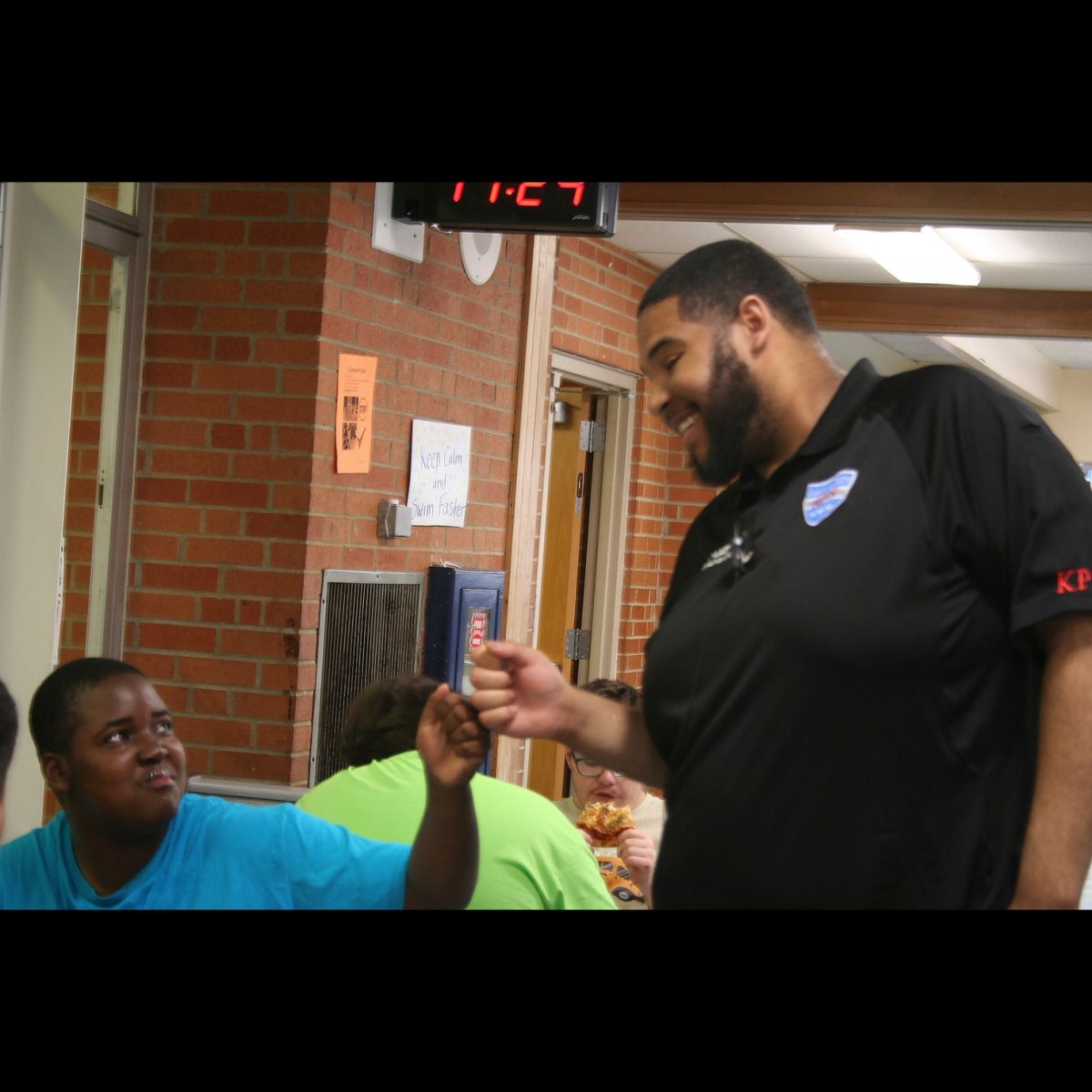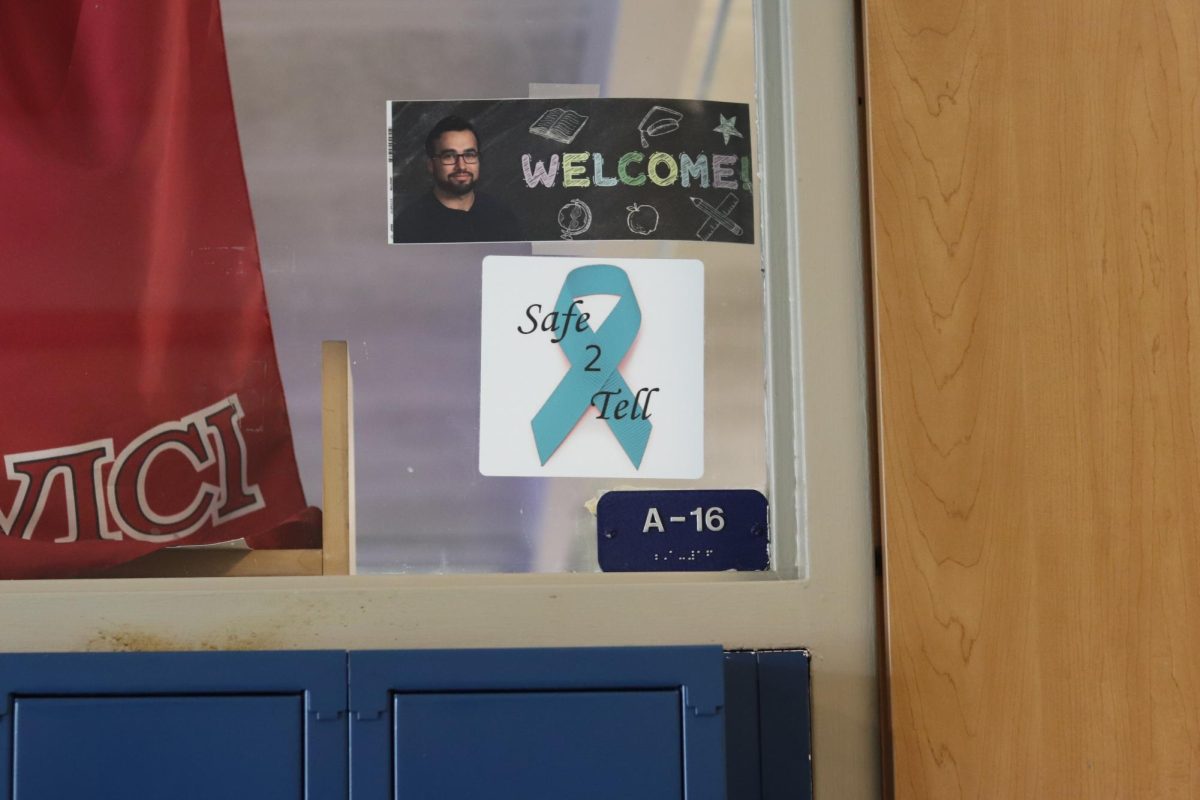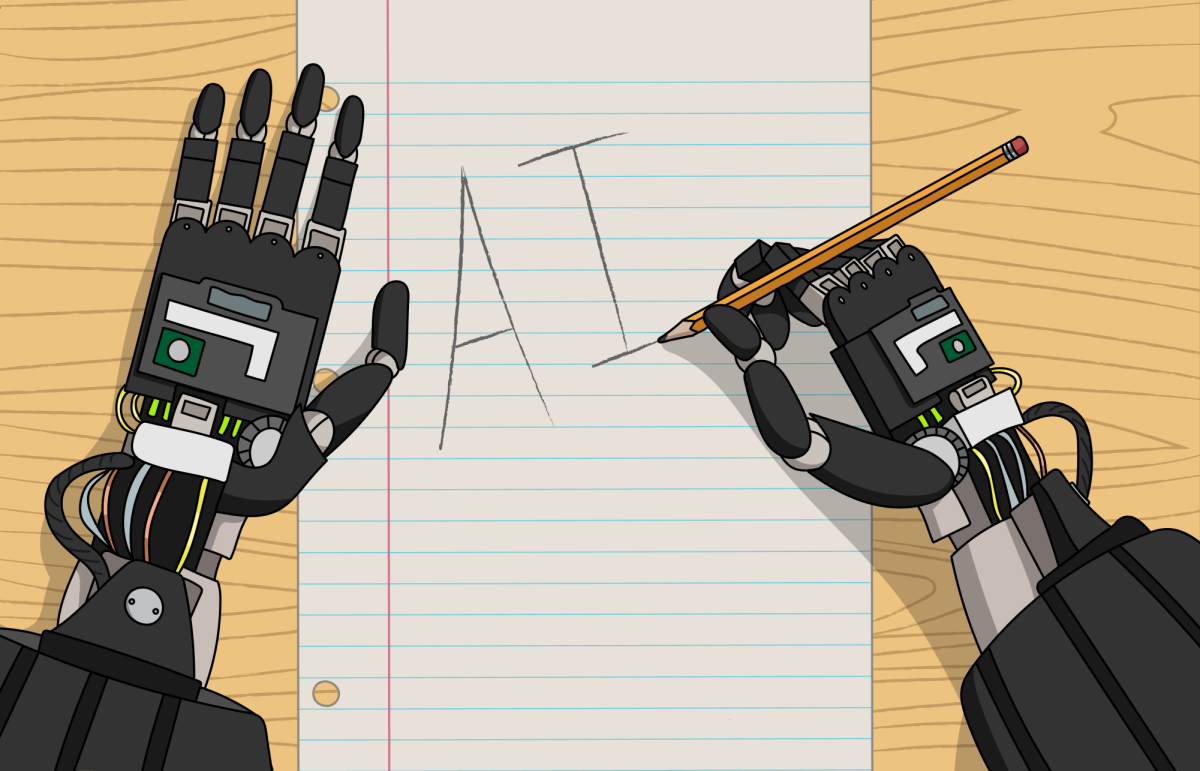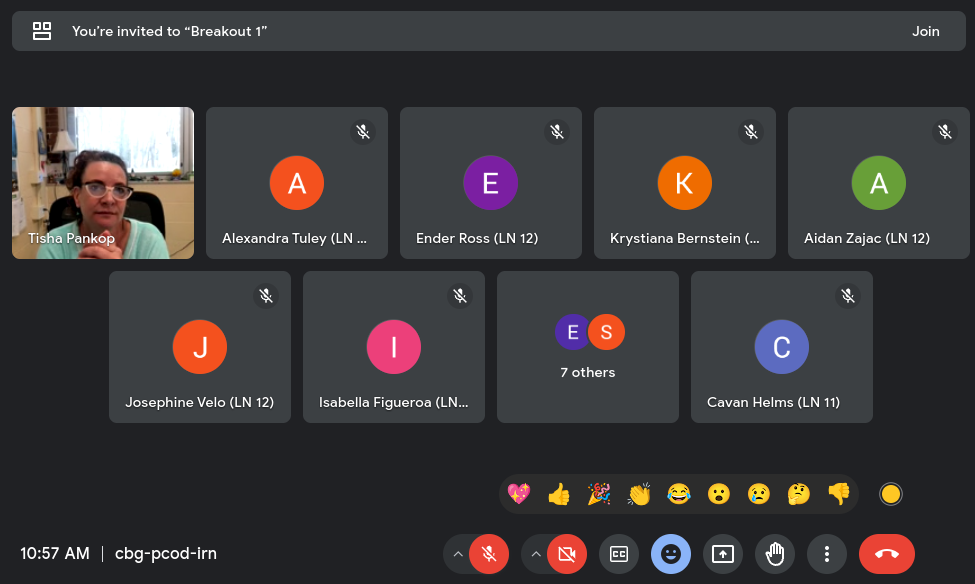
A fish and a monkey are presented to a panel of judges. The judges are arranged in a half circle around a tree twenty feet high. In the center of the half circle, one judge sits in a chair larger than all the rest, he is the chief.
The chief stands, “In the interest of fair assessment, we have designed one test for both of you, to be graded by us. You must climb the tree in the center of the clearing.”
The monkey quickly scrambles up the tree reaching the top in seconds, but the fish, try as he might, can not scale the tree.
“Because the monkey can climb the tree, he shall receive an ‘A’,” said the chief, “but the fish can not, so he has failed and will receive an ‘F’.”
Albert Einstein once said, “Everybody is a genius, but if you judge a fish by it’s ability to climb a tree then it will live its whole life believing it is stupid.”
A monkey and the fish are very different in their abilities; students are the same. Grades provide a way to assess students, but they don’t account for the fact that students have a different way of learning and thinking. In order to create a more level playing field grades should be removed from the modern day school system.
In modern education, the idea is that good grades lead to admission into a good college which then leads to a successful career that ultimately leads to a comfortable life.
With all the emphasis placed on grades, student are more likely to cheat in order to achieve higher grades because good grades will lead to a successful future. Unfortunately, these ideals promote a fear of failure in students.
Former Loy Norrix English teacher, Rob Bradford, knows all about student fear of failure and said, “That’s why kids cheat because as long as the grade is the number one reward, then a kid will do anything to make sure they have that A, whether that means plagiarize, whether that means copy off another student, whether that means quickly throw together a crappy assignment last minute. They’ll do whatever they have to to get that A as opposed to actually taking the time and taking the effort to actually learn the subject material and get better at it.”
Bradford is currently working as a middle school humanities teacher at Kazoo School, a local, independent, private school that chooses not to use grades.
Bradford and many others believe in the importance of intrinsic motivation–a concept that recognizes people learn and work more successfully if they are self-driven by their own interests and not forced to learn things because they should.
“If you can actively instill that perspective [of intrinsic motivation] in a child early on then the grading at a high school level doesn’t matter because they’re learning to learn,” said Corey O’Bryan, an algebra and geometry teacher at Loy Norrix.
At Kazoo School teachers assess a student based on their social-emotional and academic growth in progress reports. Progress reports are short essays written by the teachers about each individual student. This gives parents a better idea of their child’s growth, not only in terms of academics but also in their behavior and maturity.
“Replacing letter and number grades with narrative assessments or conferences, qualitative summaries of student progress offered in writing or as part of a conversation, is not a utopian fantasy. It has already been done successfully in many elementary and middle schools and even in some high schools, both public and private,” said Alfie Kohn in his article, “The Case Against Grades.”
Kohn is a well known author and public speaker on human behavior and children’s education.
Unfortunately, not many students have the means or opportunity to attend a school like Kazoo, due to the expensive tuition of private schools. This is why it is so important to implement alternate methods in public schools. If students can’t come to schools that are small enough to take into account each individual, then we must bring that environment to them. This will not be easy, mainly because Kazoo School has one hundred students total (preschool to eighth grade) creating a one to five teacher to student ratio, comparatively, Loy Norrix has a 1 to 130 teacher to student ratio. With so many students per teacher, Loy Norrix teachers don’t have enough time to individually assess each student; however, Loy Norrix has implemented alternative grading scales in the past.
“We used to have what they call standard based grading, and all of our tests and quizzes were graded on three levels, basic, proficient and advanced. But then, we still had those levels translated into letter grades,” said O’Bryan.
Grades are usually based on whether or not a student has turned in their work and their performance on tests and quizzes. A student might understand a subject perfectly, but if they don’t do their homework, they will end up with a lower grade. On the other hand, if a student does not understand what they’re learning about but turns in all of their homework then they will pass the class without actually gaining any knowledge.
“It comes down to the idea of competitiveness, I think that so many times people take a test and see, ‘Oh I got a 94 and, oh, that kid got a 92, so I guess that means I did well,’ when that doesn’t mean anything because maybe they could have done even better.” Bradford continued, “I think that grades are a number that put people in a ranking order, and that’s not where people need to be thinking. They need to be thinking about, ‘What did I not know before this unit started, and let me think of all the things that I now do know’ and I might go from knowing nothing to knowing half of it and technically that would be a fifty percent and I’d get an F but I grew so much. Where another kid walked in knowing most of it and grows from being a quote un-quote 85 to a 91, but there was no growth there.”
Despite the negative aspects of grades, some upsides do exist. Grades provide a form of assessment for colleges and employers to use on all students. Grades also teach students to hit deadlines. Sometimes it is necessary to do unpleasant work to succeed. Similarly, in school there are assignments that are required to be completed to pass the class. Grades encourage students to complete their work on time.
So the question remains, how can public schools find a way to eliminate grades while still retaining a system of assessment for their students? Not to mention, students who wish to attend college need to be able to prove their qualifications in their applications.
“I believe that if a student doesn’t receive what they deem a high enough grade then they will be so distracted by their grade that they will miss the learning opportunity that comes with a mistake. I propose, in an ideal world, the teachers don’t give grades but instead give suggestions for ways to improve their work,” said Loy Norrix English teacher Tisha Pankop.
Moving away from a letter grade based scale would be a long and difficult process. However, schools can begin to move forward by only using letter grades to determine the scores of students taking core classes. This way colleges have a way to rank students’ traditional academic abilities. Electives are a way for students to explore career paths or pursue a hobby outside of English, Math and Science. Electives are usually more flexible in their curriculum and can survive without the rigid standards brought on by grades. It is not a huge step, but it can make a world of difference in the way education influences students’ futures.
Letter Grades: It’s Time to Consider an Alternate Assessment
April 15, 2016















